Economic Justice Requires More Than Money Alone
The United Nations declared February 20th to be World Day of Social Justice in 2007. We are approaching that date, and it brings to mind many questions surrounding social justice that have come to the fore in recent years. I am not sure that it is easy to communicate a precise definition of social justice. It is, however, easy to think of examples where social justice is lacking:
a world where only half the population is vaccinated against COVID and they are overwhelmingly located in wealthy countries…
a world where the benefits of education accrue to those who are already advantaged due to their zip code or their ability to pay for private schools…
a world where a person’s race or religion immediately moves the starting line several feet back…
We sadly live in a world where there are countless examples of social injustice. The particular brand of injustice that motivates Upaya is that of extreme poverty.
Economic insecurity is an injustice.
The world has made great strides in cutting extreme poverty in half in the past 20 years, notwithstanding the devastating effects of COVID. But it is also a basic fact that we live on a planet that could easily provide adequate food, shelter and healthcare for our entire population. And yet over 700 million people continue to live in unjust poverty.
This injustice manifests in myriad maddening ways. For example, do you realize that it is painfully expensive to be poor? The poor often pay a premium for their goods because they can not buy in bulk or time their purchases to take advantage of discounts. They often struggle to take advantage of economic opportunities because of a lack of transportation. Their children may miss out on government funded education because of a requirement for school uniforms. The list goes on…
The multi-faceted challenges of poverty are why Upaya does not simply define a dignified job as one that improves the family's income. Certainly, income improvement is a critical component to our analysis. but it is equally important to us that those who are employed by our portfolio companies feel a sense of self-worth and agency in their work. When we look for companies that create dignified jobs for the poor, we evaluate questions of reliability, safety, and fundamental respect in addition to the economic benefits. We explore whether entry-level roles have room for growth and training. We look to see how long people stay in these roles as an indicator of job satisfaction.
Money alone might improve extreme poverty; economic justice requires more.
One of the most frustrating forms of injustice that we encounter is when well-intentioned government programs to support poor families are under-utilized because the families who could benefit don't know how to access them. In a country like India, with 1.3 billion people and a vast rural population, reaching those who need these programs can be highly complicated.
One of our portfolio companies, Haqdarshak, is tackling this complicated problem with technology. They have built a mammoth database of government opportunities and created an elegant app that allows individuals to answer straightforward questions to determine what programs they are eligible for.
Upaya was particularly taken by their approach to deploying this app. Recognizing that those who need the service the most are less likely to be able to access the app, they deploy an army of agents, called Haqdarshaks, to seek out potential users and walk them through the app. In this way, they create thousands of jobs and help citizens gain access to the services and support they are due. Haqdarshak has partnered with government agencies, philanthropic foundations, and corporations to make sure that good programs actually reach those intended. At the same time, the agents they employ perform satisfying work on a flexible schedule and support their own households with additional income. To us at Upaya, these kinds of jobs move us closer to social justice.
A few years ago, my teenage son referred to me as a "social justice warrior." I am fairly certain that, at the time, he did not mean it as a compliment. I, on the other hand, decided to ignore whatever his intentions were. It was the first time I had heard the expression, and ever since, I have worn the badge with honor.
MEDIA CONTACT:
Madlin D’silva
mdsilva@upayasv.org
